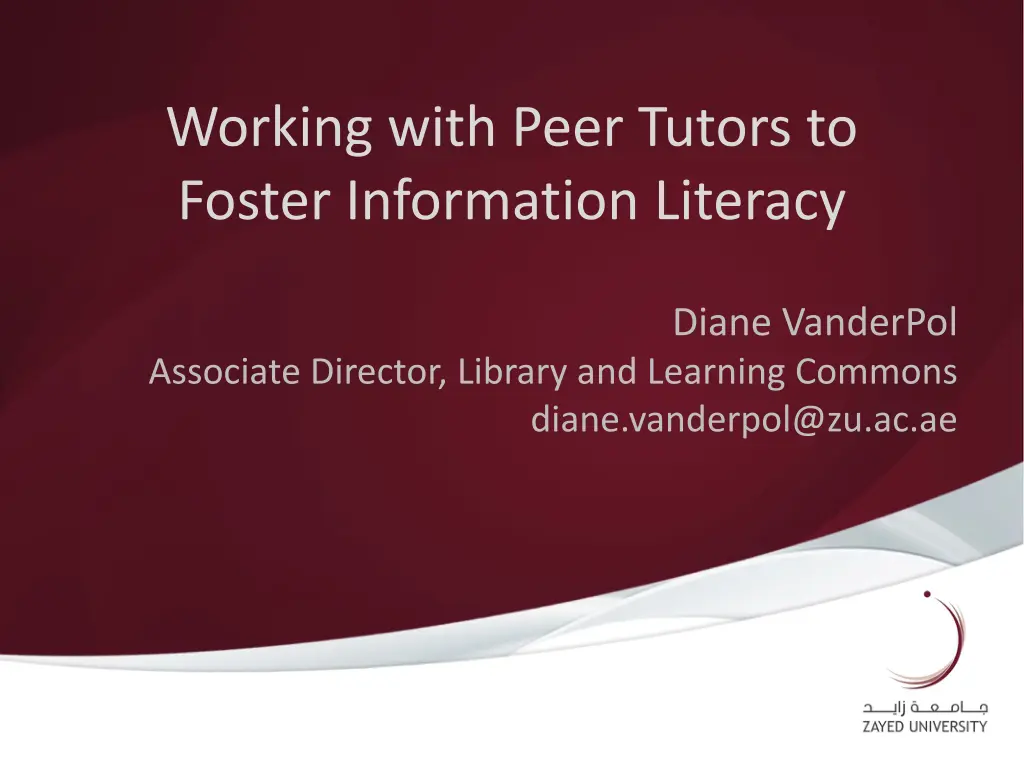
Peer Tutoring for Enhancing Information Literacy: A Collaborative Approach
Explore how working with peer tutors can foster information literacy skills among students, with insights from the Research PALS program and positive student feedback. Discover the impact, challenges, and future steps in this innovative initiative.
Download Presentation

Please find below an Image/Link to download the presentation.
The content on the website is provided AS IS for your information and personal use only. It may not be sold, licensed, or shared on other websites without obtaining consent from the author. If you encounter any issues during the download, it is possible that the publisher has removed the file from their server.
You are allowed to download the files provided on this website for personal or commercial use, subject to the condition that they are used lawfully. All files are the property of their respective owners.
The content on the website is provided AS IS for your information and personal use only. It may not be sold, licensed, or shared on other websites without obtaining consent from the author.
E N D
Presentation Transcript
Working with Peer Tutors to Foster Information Literacy Diane VanderPol Associate Director, Library and Learning Commons diane.vanderpol@zu.ac.ae
Reading the Campus Environment- the search for collaborators Showcase programs: Peer Assistance Leaders (PALs) program Campus priorities: Preparing students to be participants in a knowledge economy
The Research PALS (rPALs) Program Students self-selected to participate in four required sessions to earn the rPALs certificate Specific learning outcomes selected from ACRL s Information Literacy Standards document, adjusted to meet the needs and abilities of student participants Students were proficient with mechanics, struggled to make content connections and to understand the implications of bias
Selected Activities Finding the original study cited in a news source plus a meta exploration of the controversy about the original study Listing, sorting, clustering keyword descriptors for a photo to understand subject headings, related/broader/ narrower terms
Response Student opinion- overwhelmingly positive, self- reported development of information literacy Unspecific requests for more Learning outcomes met/ demonstrated- mixed results Administrative feedback- well received Interest piqued at Provost level Willingness to explore other collaborations on the part of PALs administration
Next Steps Lessons learned for year two: More time on task both in and out of sessions Standardizing/ reviewing vocabulary Focus on connections and implications Individualized levelling Advanced student mentoring project PALs liaison, on site reference and workshops
